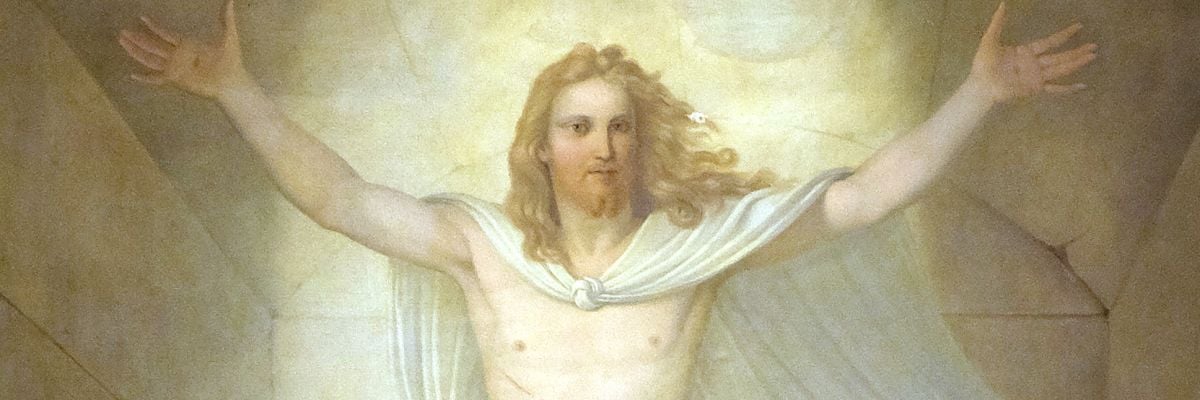
DAY 128
CHALLENGE
“The resurrection of the dead is absurd. An ancient might believe that God could reanimate dead bodies, but after death our bodies are broken down into their constituent elements. Further, particles from one person’s body can end up in another person’s body.”
DEFENSE
Belief in the afterlife is a human universal. This is a sign that it exists. The question is what form it takes. God has revealed that the afterlife includes an eventual bodily resurrection. He has demonstrated this by raising Jesus from the dead (on the connection between Jesus’ Resurrection and ours, see 1 Cor. 15).
The idea that the ancients could believe in the resurrection of the dead because they were unsophisticated is chronological snobbery. They were as aware as we that the body decomposes into tiny particles. In the first book of the Bible, God proclaims to man: “You are dust, and to dust you shall return” (Gen. 3:19).
In Jesus’ day it was customary to entomb a body and then, once the flesh had rotted off the bones, to return, clean the bones, and place them in a container known as an ossuary. People were thus brought into immediate contact with the decay of their loved ones’ bodies. Nor were the ancients ignorant of the fact that—through cannibalism or less direct means—matter from one person’s body could end up in another’s. The medieval philosophers explored this question in detail.
The fundamental part of man that guarantees personal identity over time is the soul, which is the “form” of the body (CCC 365). How- ever, over the course of our lives, the matter that makes up our bodies changes dramatically.
The International Theological Commission notes: “The Church has never taught that the very same matter is required for the body to be said to be the same. But the cult of relics, whereby Christians profess that the bodies of the saints who were living members of Christ and the temple of the Holy Spirit must be raised and glorified by Christ, shows that the resurrection cannot be explained independently of the body that once lived” (Some Current Questions in Eschatology 1.2.5).
Christian theology thus holds that the resurrected body is connect- ed with the one that previously lived but not that it contains all the matter that was ever part of it in life.



